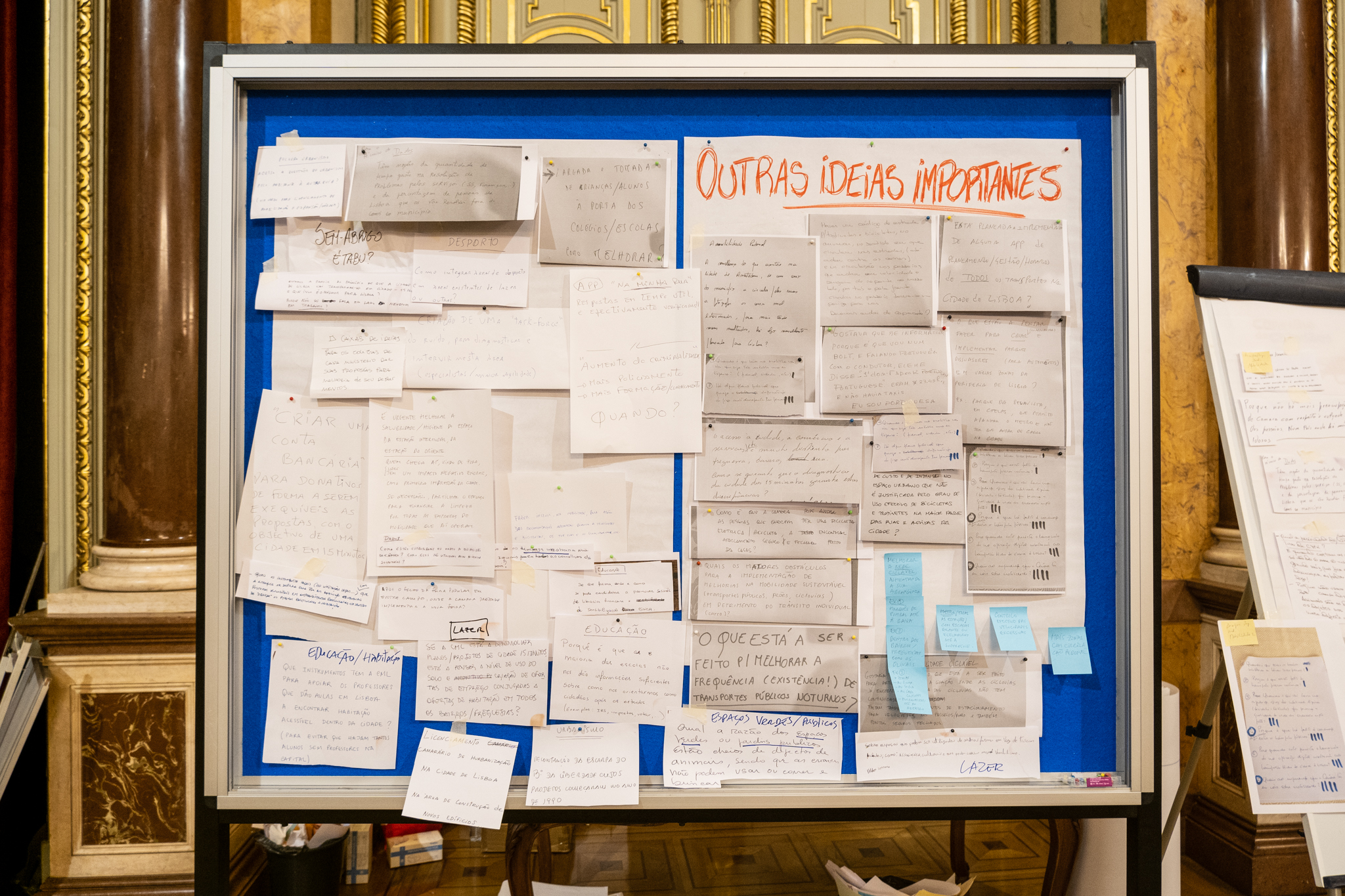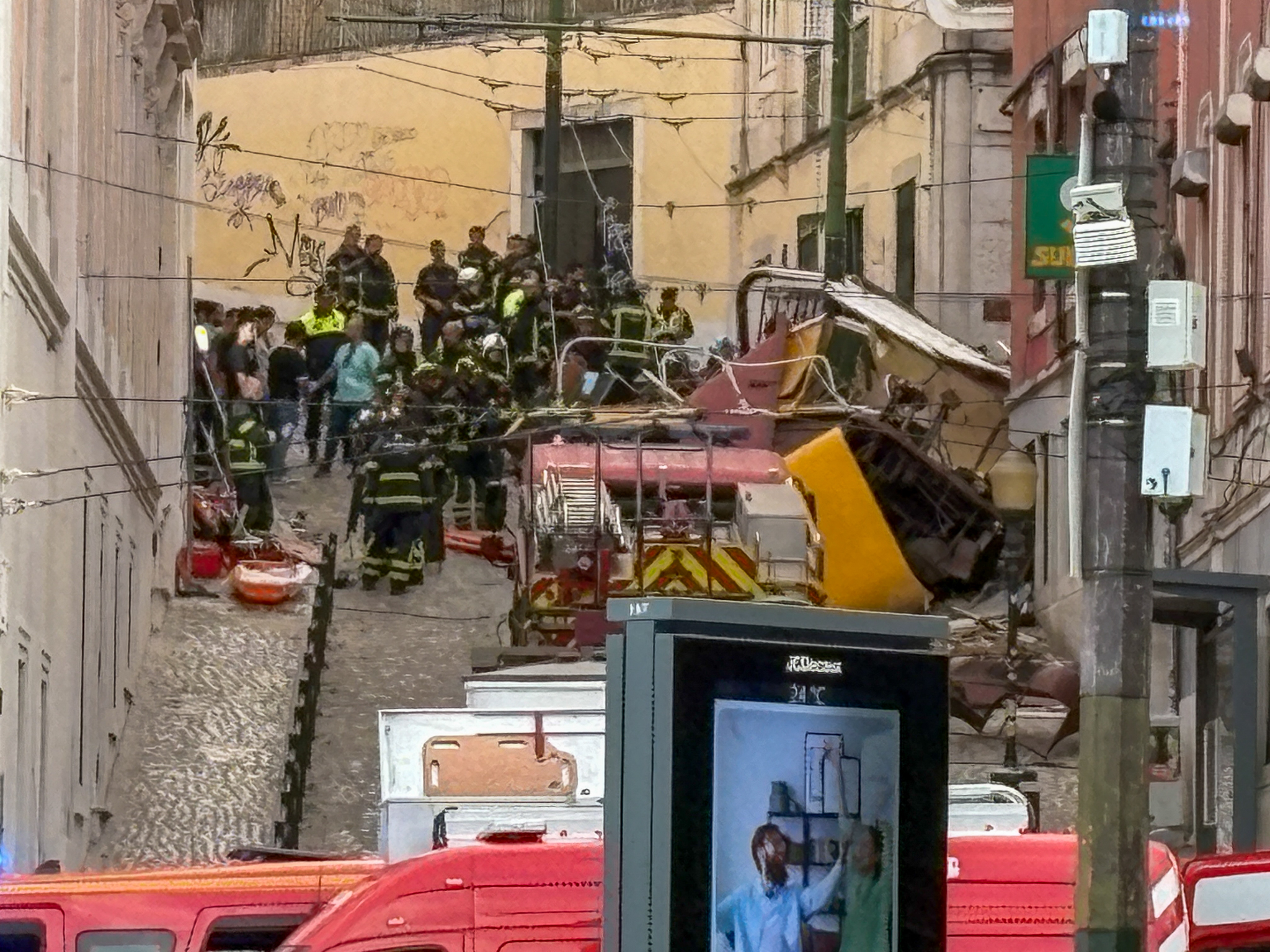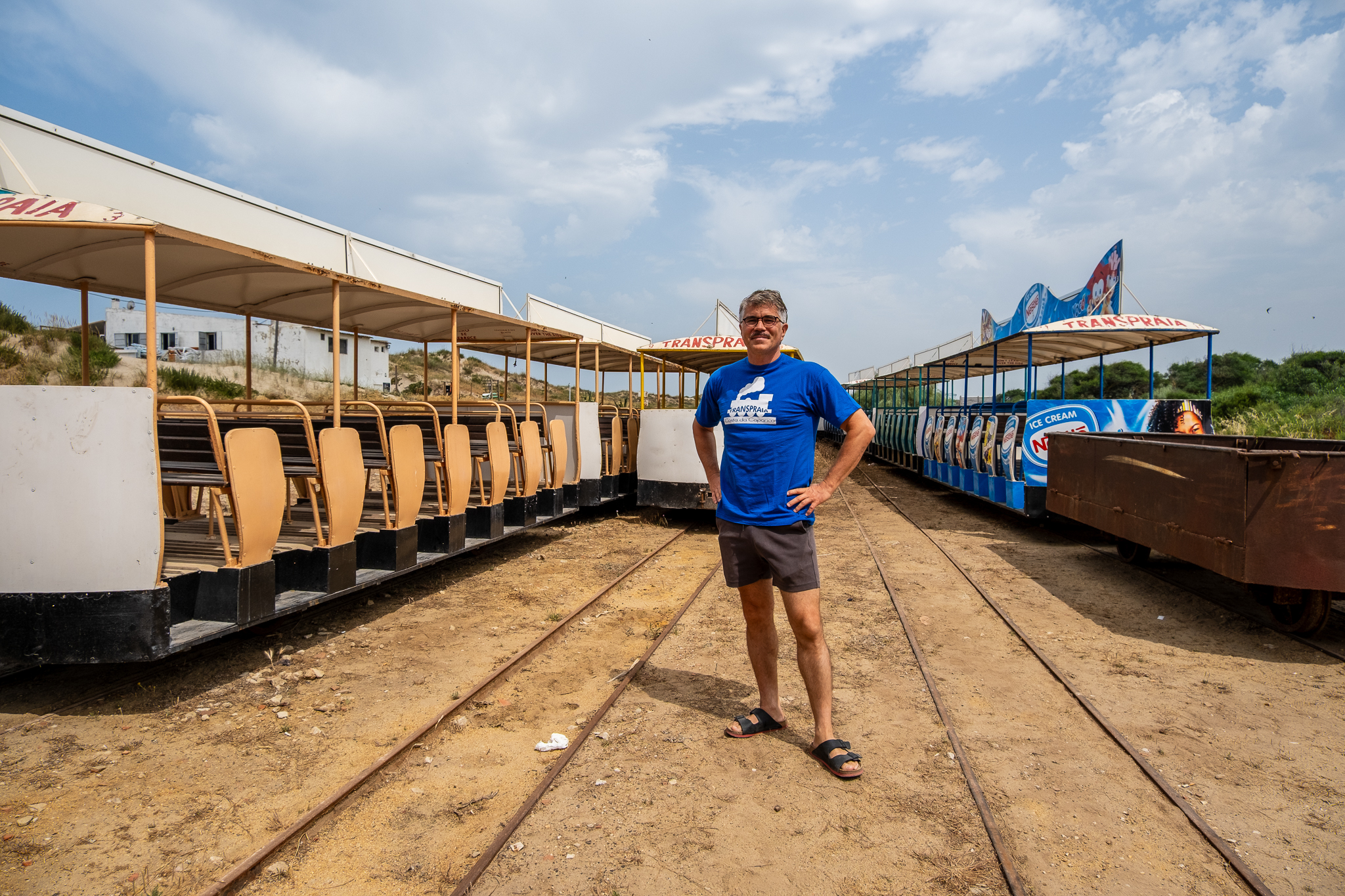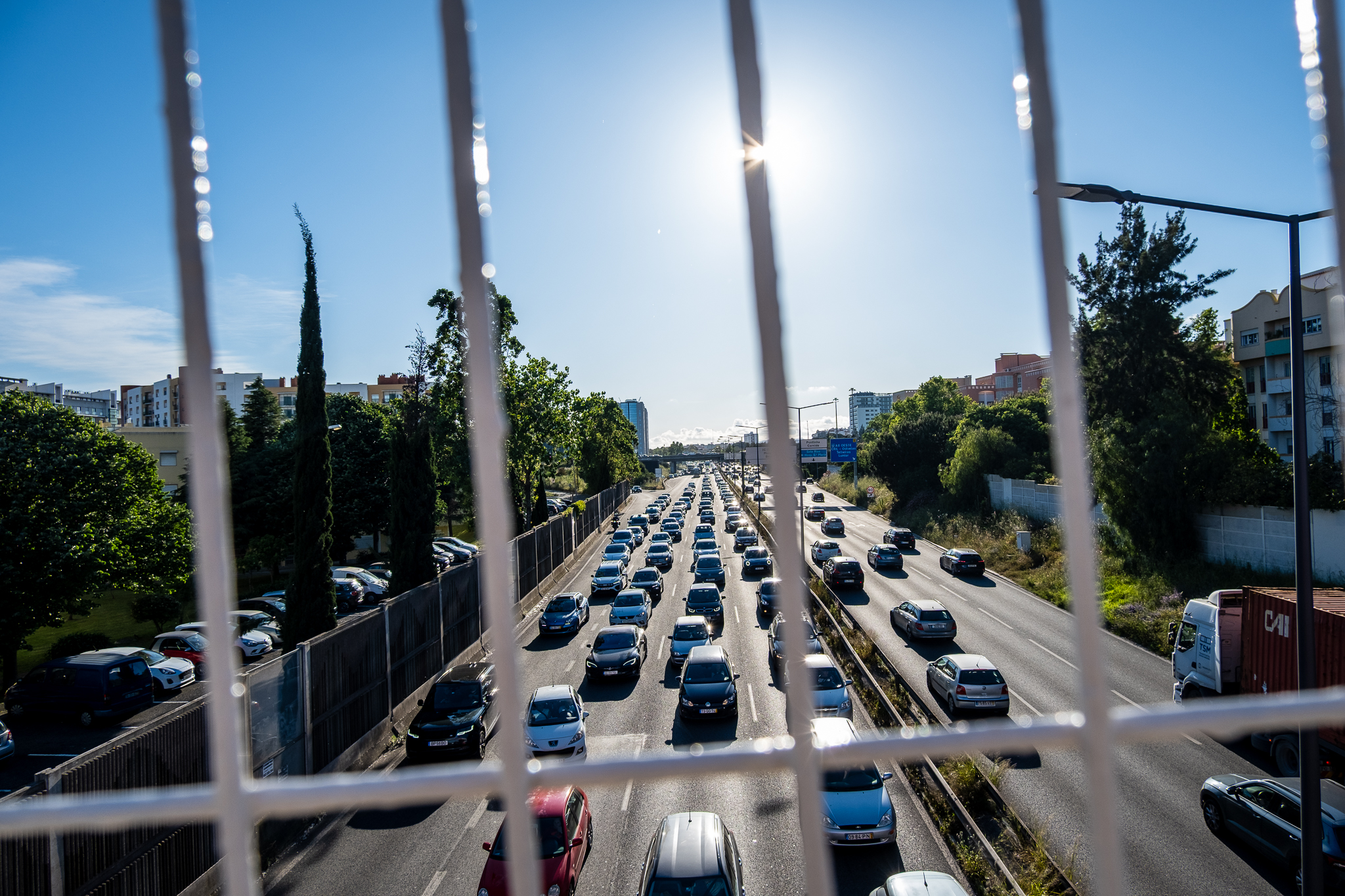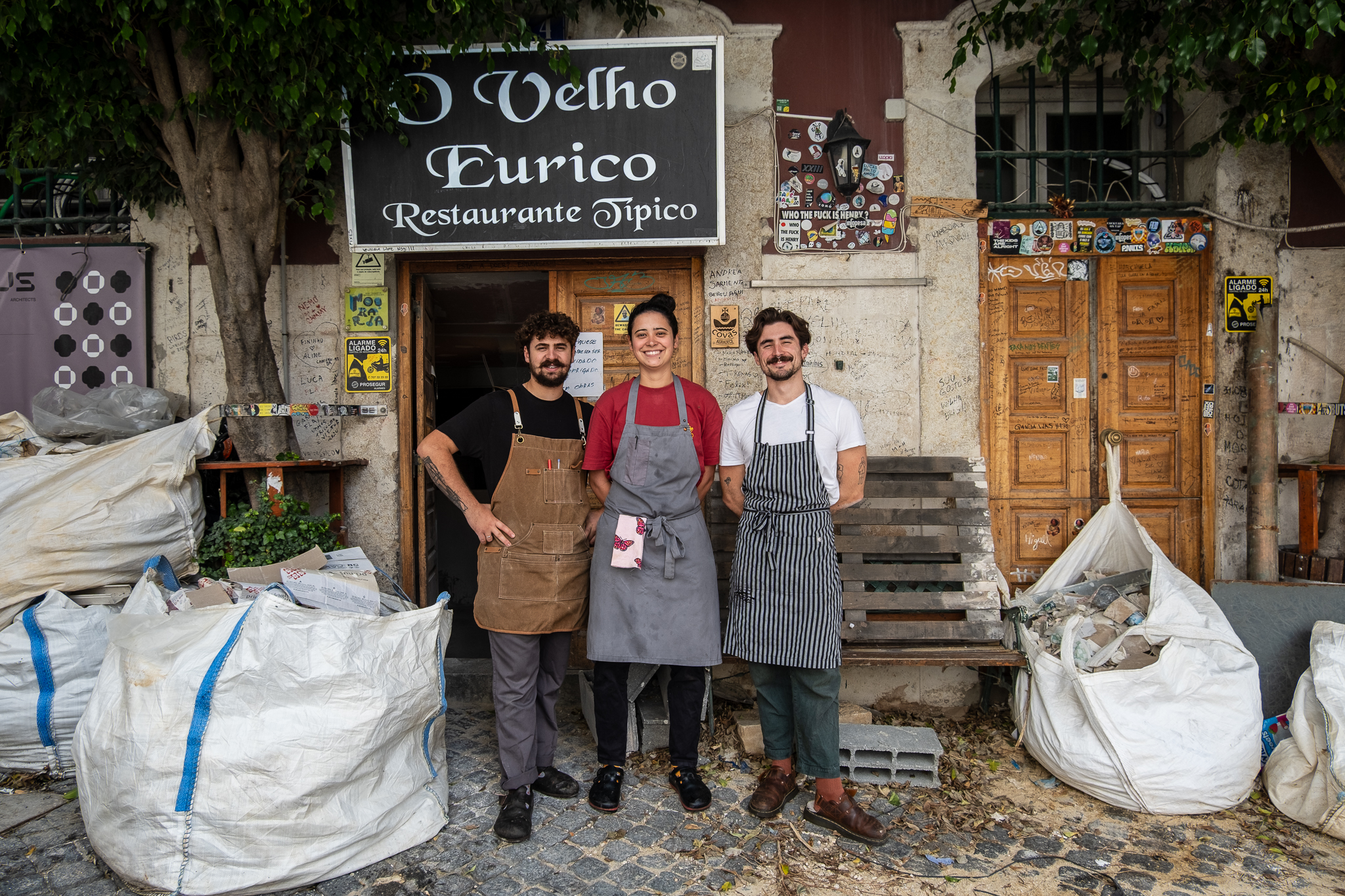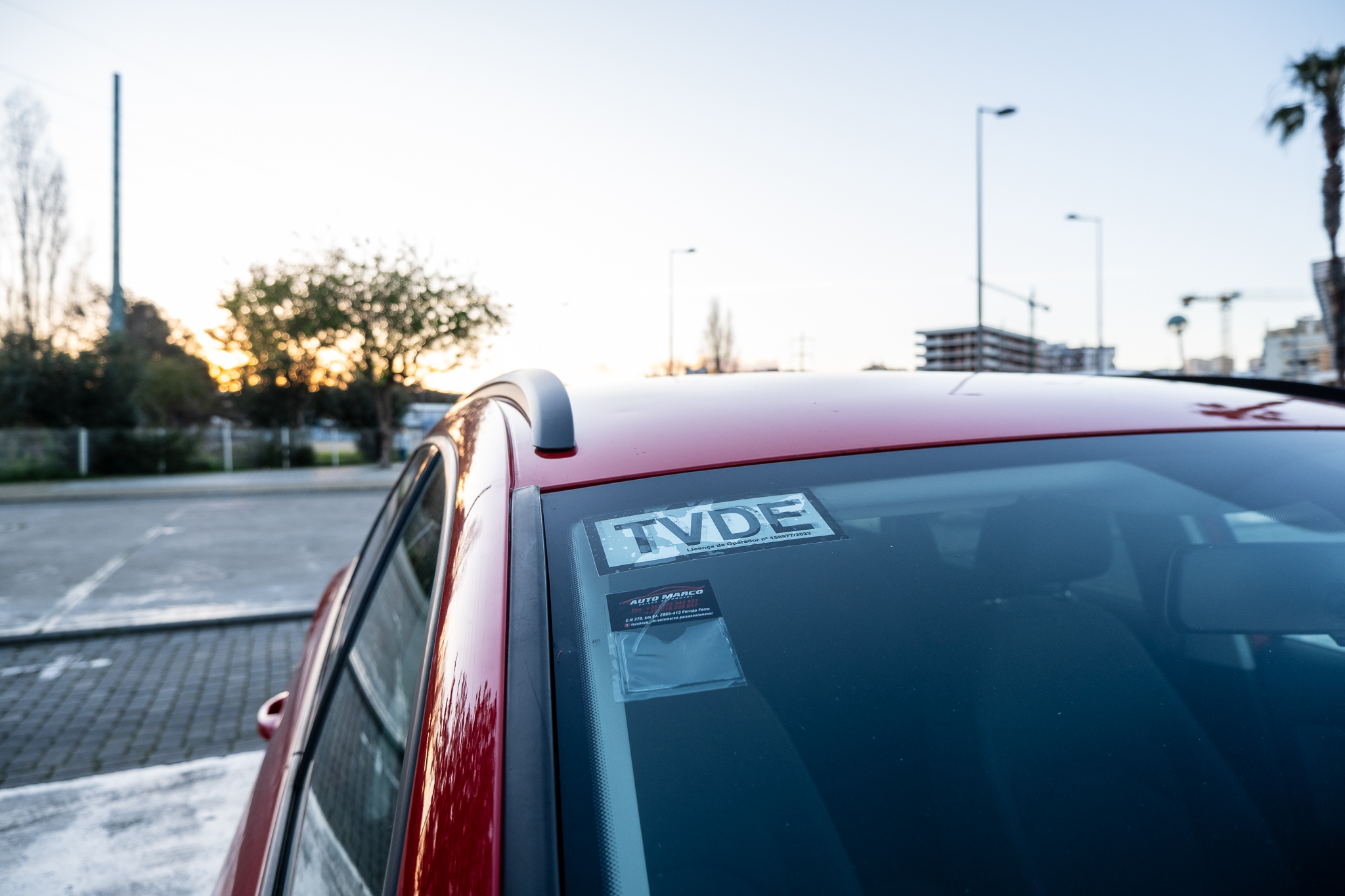The citizens presented their proposals to make Lisbon a "15 minute city", with multifunctional neighborhoods where equipments and services are closer.

Last Saturday, April 1st, the five dozens of citizens that made up the Citizens' Council dedicated to the "15-minute city" theme presented their proposals to help make Lisbon a city of greater proximity to essential equipment and infrastructure. After two Saturdays discussing problems and solutions in the City Council's Great Hall, the citizens presented their proposals to the Mayor of Lisbon, Carlos Moedas, and the media.
During the Citizens Council, the participants were organized into five thematic groups - Leisure, Mobility, Commerce and Services, Health e Education - and worked with a team of facilitators and municipal technicians, who helped them to concretize their ideas. In the end, each group presented three major proposals for the city:
The ideas of the 2nd Citizens' Council
Leisure
- Recover and use abandoned equipment (such as bandstands, stores, prisons, and military buildings) for community events, assigning them to private individuals or cultural associations through a public tender or lottery;
- Make the entrance to municipal leisure and culture equipments free to all citizens, and give discounts in central state equipments through a monthly, annual or package pass (*);
- Create the figure of the "garden monitor", responsible for the supervision and awareness of the rules of green spaces, to ensure their safety.
Mobility
- Improve the public transport network with more frequent and extended timetables during the night, better articulate the timetables of the different modes of transport at the interfaces, interconnect this network with light modes such as minibuses and bicycles, and also articulate it with a system of deterrent parking lots;
- Put the pedestrian accessibility plan into practice, ensuring proper sidewalks for people with reduced mobility, and escalators and elevators always working in public transportation;
- Regulate and supervise the use and parking of bicycles and scooters, making insurance mandatory for the use of these vehicles and knowledge of the Highway Code, with training in elementary school education (**).
Commerce and Services
- In 2024, carry out a mapping, together with INE and the parish councils, of the commerce and services existing in the city, as well as a survey of the residents of these parishes, to have a diagnosis of the needs;
- Present in 2025 a plan and regulation to support the opening of commerce and services in each neighborhood based on the diagnosis made the previous year, giving preference to residents of each neighborhood and to vacant buildings;
- Recover and make available at affordable prices Council properties that are closed, vacant or abandoned for commercial and service stores.
Health
- Promote an awareness campaign for urban hygiene (animal droppings, common garbage, waste next to ecopoints, etc) with street signs, media communication, leaflet distribution, and meetings among neighbors, accompanied by increased enforcement and rewarding of urban hygiene teams;
- About the health centers: guarantee the requalification of the buildings, improve the signage in the streets for these equipments, end the paid parking next to them and improve the access by public transportation;
- To promote actions related to mental health, such as consultations, support groups, debates, special support for mothers/fathers, art projects, and sex education, involving the City Council, the parish councils, private individuals, and also IEPP - Instituto de Ensino Pesquisa em Psicoterapia.
Education
- Create more housing/residences for "displaced" teachers and university students by reclaiming vacant buildings and council property near schools and universities;
- Give tax benefits to those who host or develop residences for teachers and students, for example, through IMI or IRS reduction;
- To establish a network of spaces (libraries, parish councils, communities...) where meetings are promoted to share knowledge (music, dance, literature, cooking...), in an intercultural and intergenerational way.
(*) young people up to the age of 23 and people over 65 who live in Lisbon are already entitled to a Culture Pass, which allows free access to municipal cultural facilities. There are also several municipal and central government spaces with free admission on Sundays and holidays for everyone
(**) the use of bicycles and scooters is regulated, like other types of vehicles, by the Highway Code. Knowledge of it is also a requirement of any user of the road and public space, including pedestrians, and there are elements of it that are taught in school.
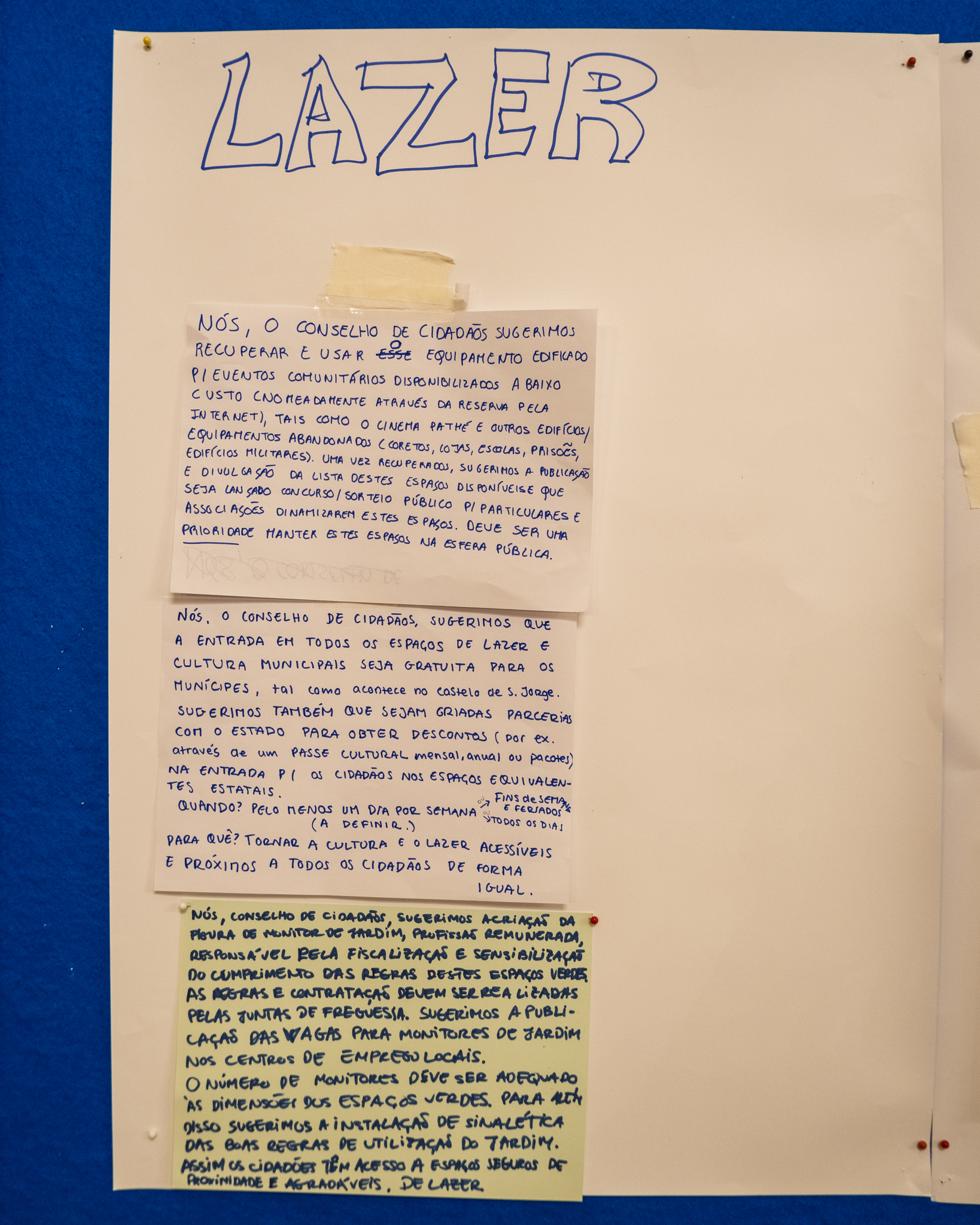
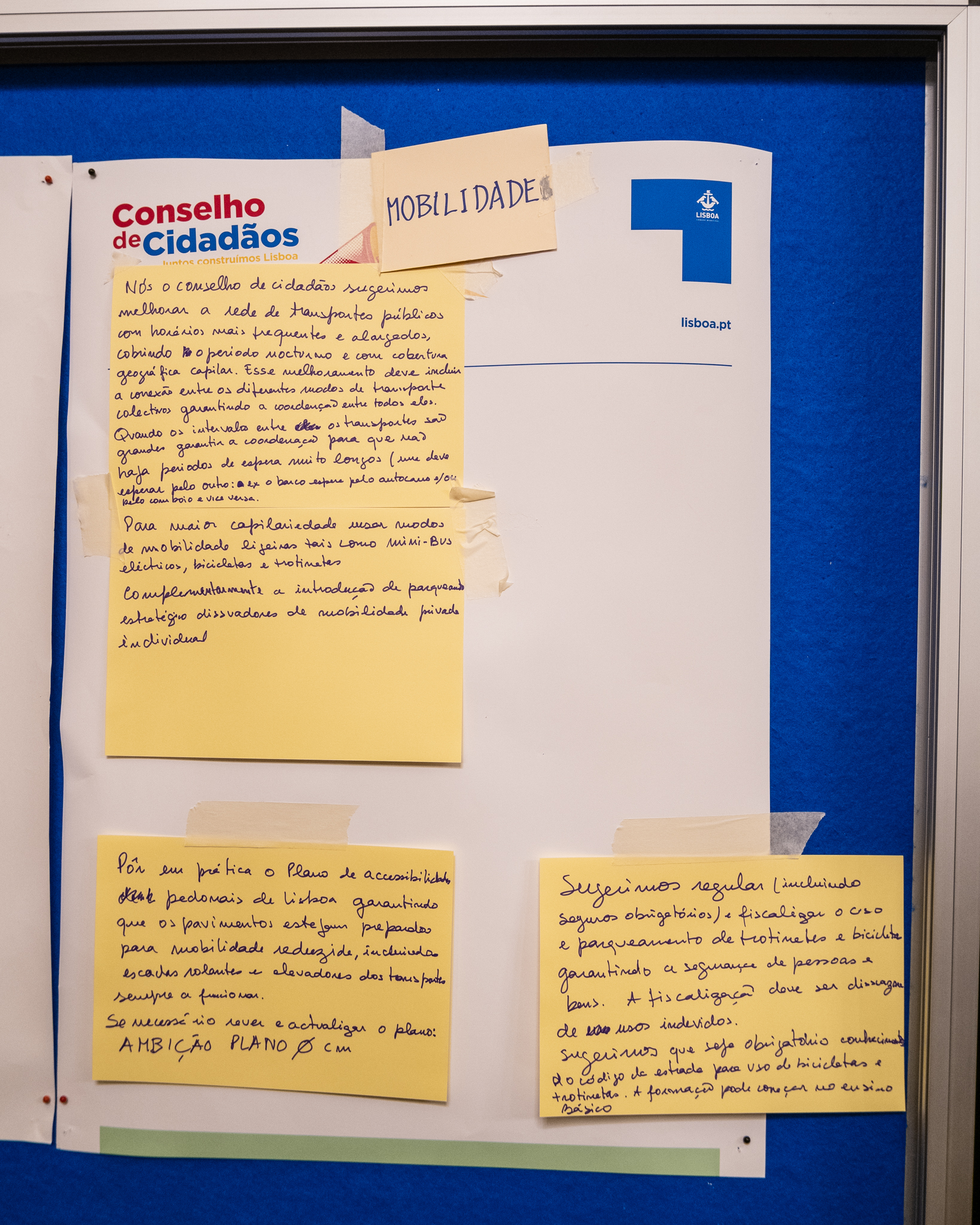
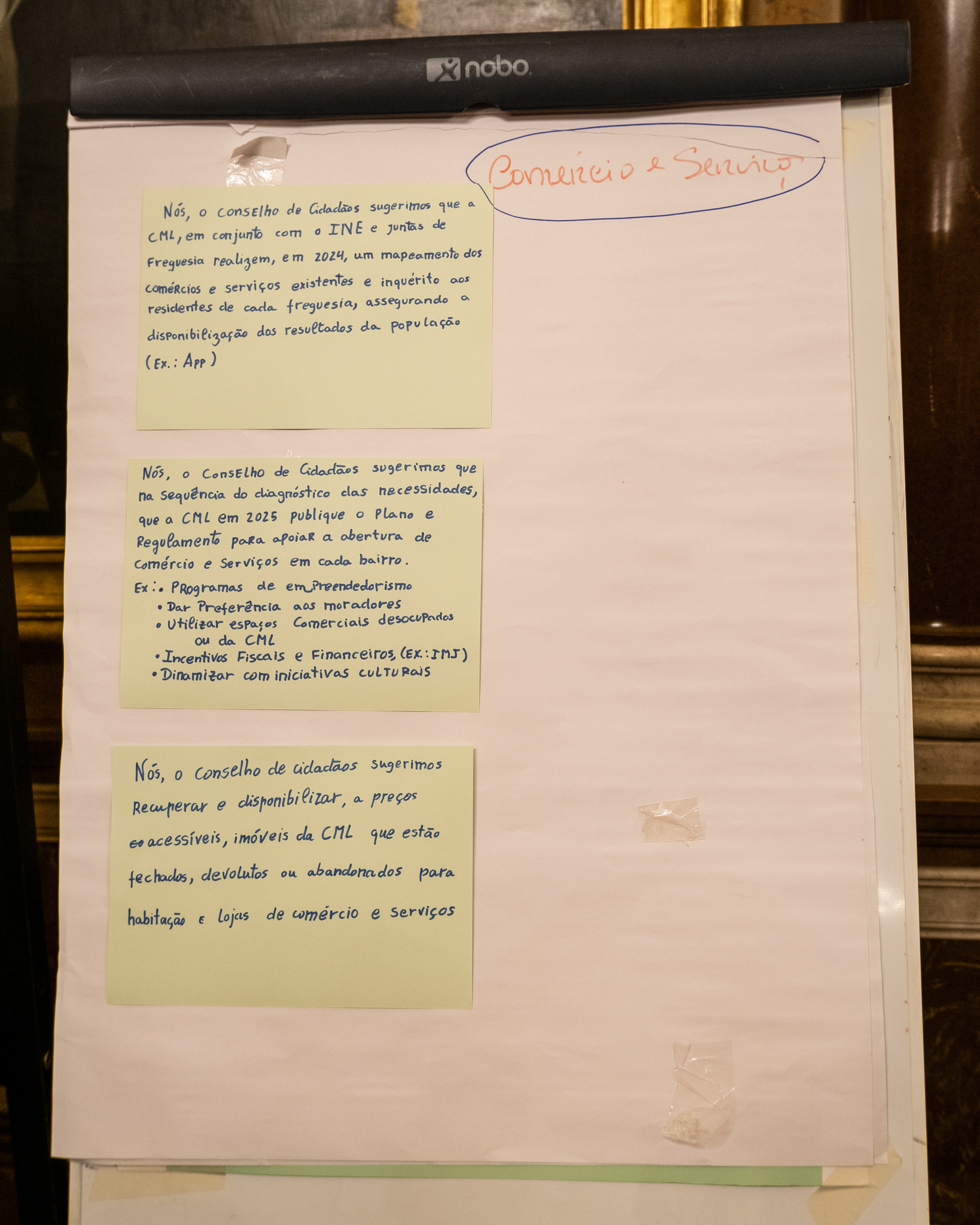
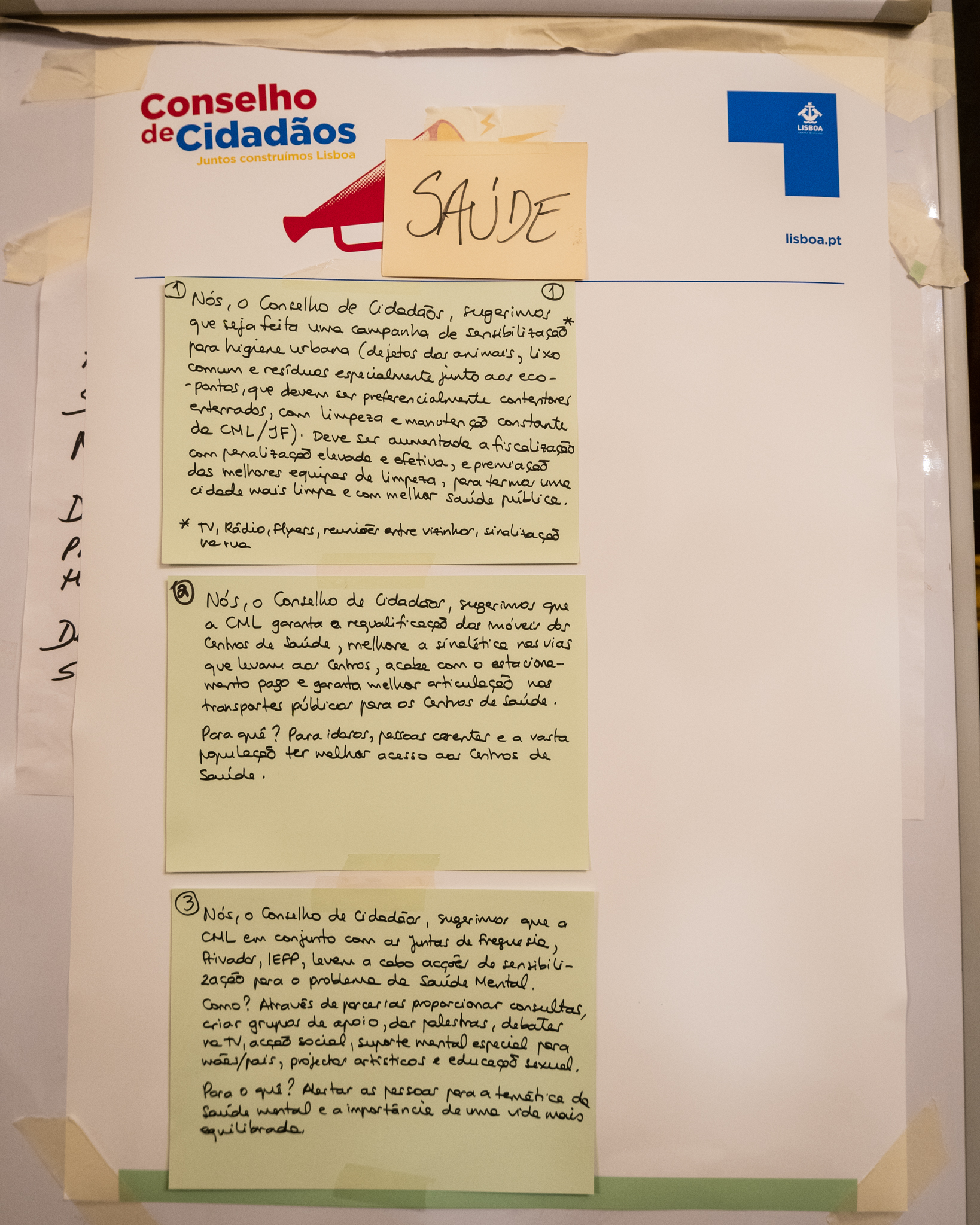
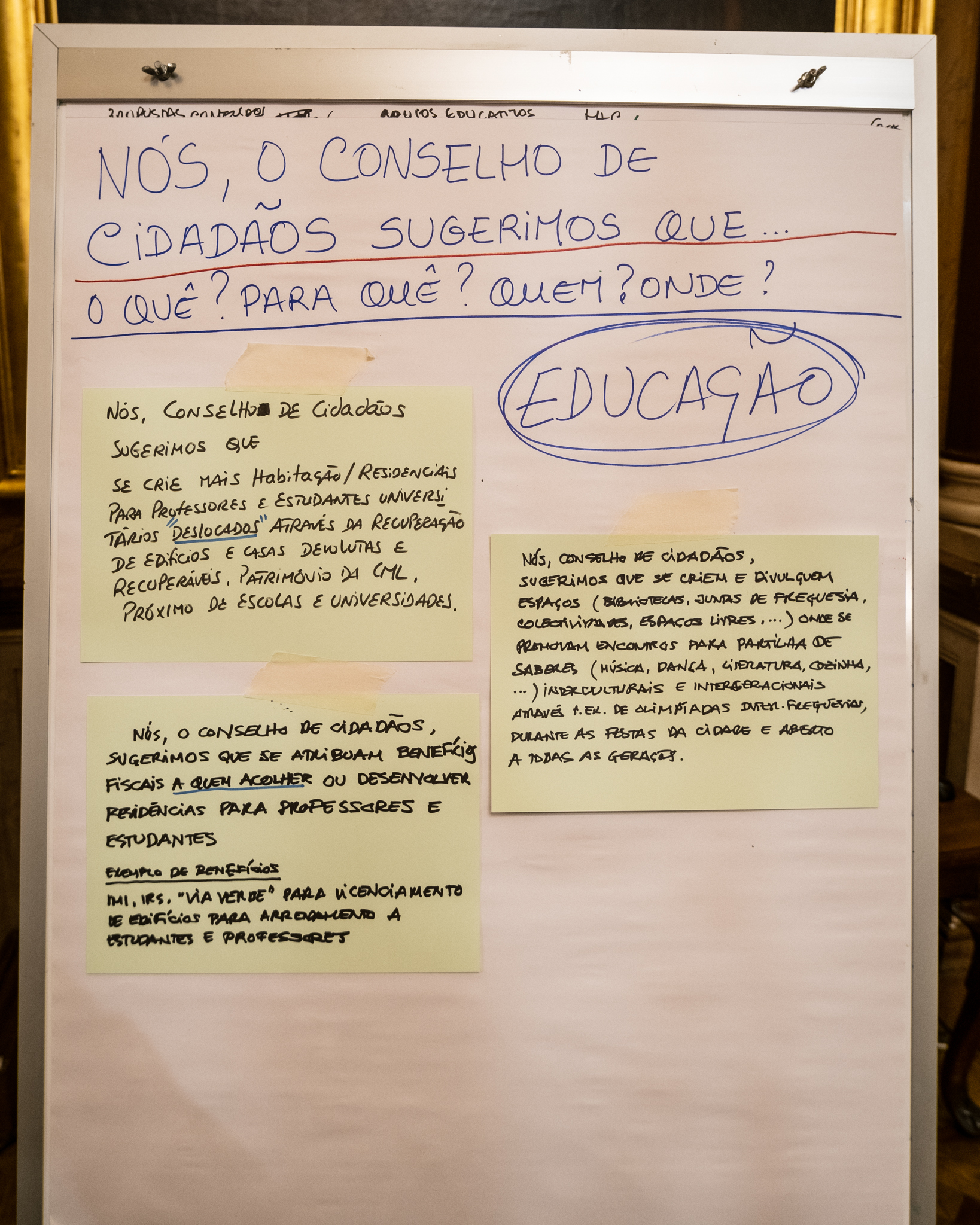
"These ideas have no party, they are from the citizens"said Carlos Moedas, after hearing the results of this Citizens' Council. The Mayor was particularly enthusiastic about the garden monitor idea ("Why didn't I ever come up with this idea?"he joked), with the possibility of extending the Culture Pass to all residents ("There is a will to do more here, let's do it"), with the recovery of vacant or abandoned commercial spaces ("This is one of the foundations of the 15-minute city"), and with the teaching of the Highway Code in schools ("Instead of waiting for kids to get their license, we can teach them the Code in schools when they are still small"), with mental health consultations ("Sounds like an excellent idea to me"), with the awarding of prizes to urban hygiene teams ("We have to give them incentives, they have few"), and with the creation of a specific housing policy for displaced teachers ("We recently launched something similar for the municipal police elements").
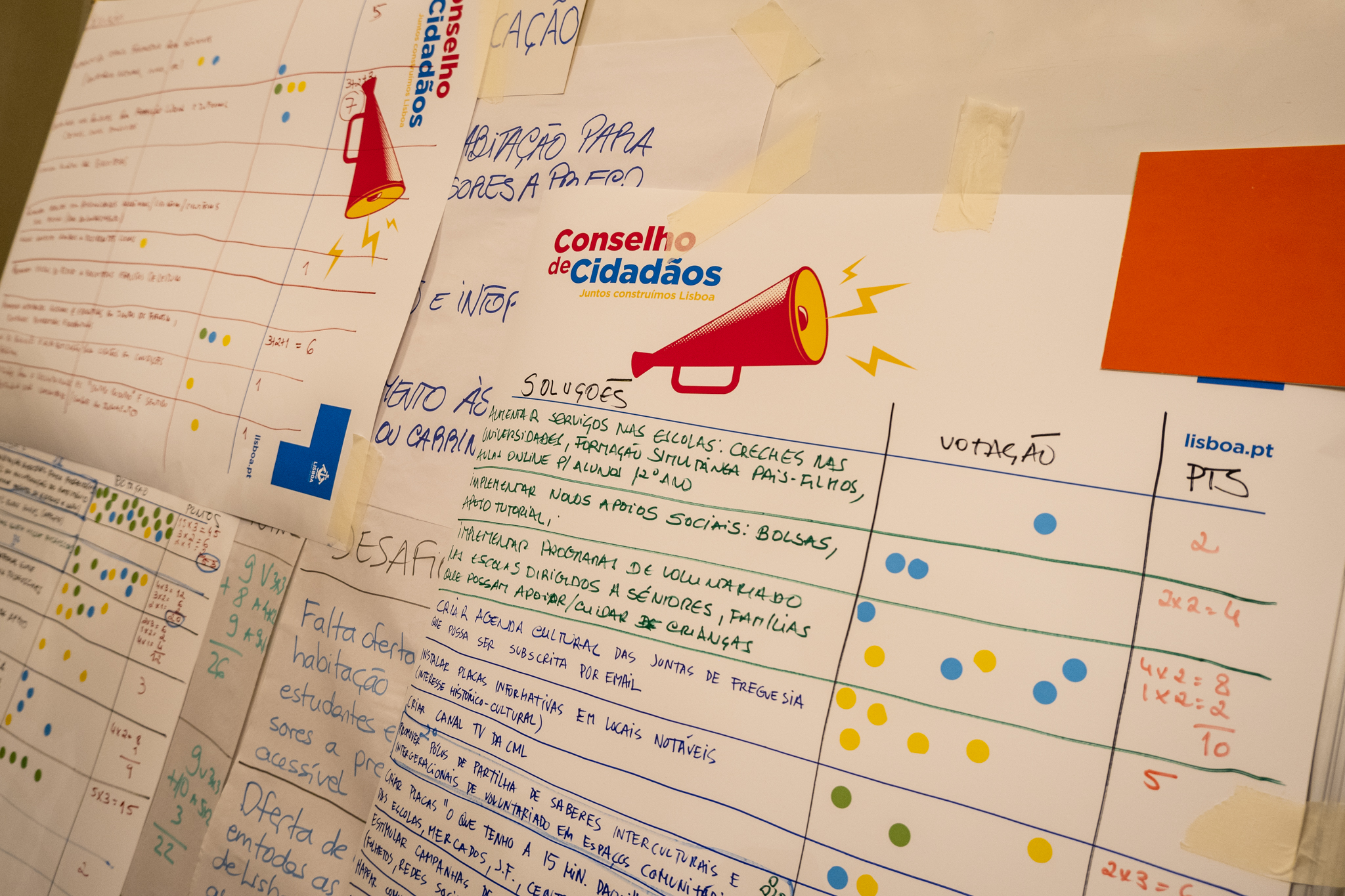
"Let's see which of these ideas we can put into practice"Moedas added. Each group will elect two ambassadors who will represent it in future working meetings with the City Council; it should be noted that not all ideas will be implemented, because the Citizens' Council is advisory and not deliberative, but the different proposals will be considered and evaluated. "I will now ask them to come and work with our people to implement these measures and also feel the difficulty in making that implementation."
What will happen now?
In addition to publishing a report with all the results and evaluations, for the sake of transparency, the work following the submission of the bids takes place as follows:
- Proposal Evaluation by the municipal executive (mayor of CML and councilors with responsibilities in the areas presented) and selection of three to five proposals that will be implemented.
- Meeting with the ambassadors of participants to share the findings of this first assessment and ensure alignment around priorities.
- Proposals are sent to the municipal directorates with the competence to implement them, and are transformed into concrete projects.
- New Meeting between the ambassadors and the municipal directorates to present the projects and make the necessary adjustments according to the feedback and additional contributions from citizens.
- Implementation Plan and launch the procedures necessary for its execution.
- After the measurements have been in operation long enough for results to be observed, the ambassadors are summoned to a further meeting to evaluate the impacts of the measures and discuss the necessary adjustments.
You can read more about this Citizens' Council here.
